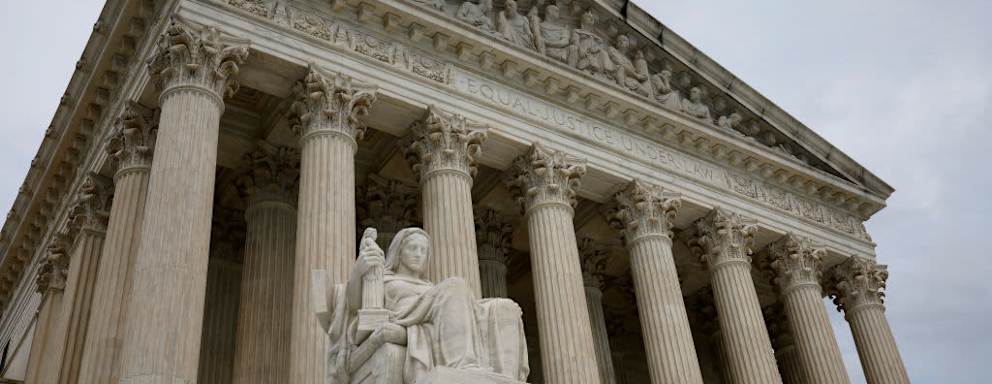Supreme Court Upholds States’ Blocks on New Title IX Rule
 Credit: Image Credit: Kevin Dietsch / Staff / Getty Images News
Credit: Image Credit: Kevin Dietsch / Staff / Getty Images News- The Supreme Court has upheld two states’ blocks on the Biden administration’s new Title IX rule.
- The lower court rulings primarily took issue with expanding the definition of sex discrimination to include gender identity and sexual orientation.
- Conservative Justice Neil Gorsuch joined the court’s liberal justices in the dissent, agreeing that certain portions of the new rule should have been able to be implemented amid appeals.
The U.S. Supreme Court rejected the Biden administration’s attempt to reverse injunctions from Kentucky and Louisiana that prohibited the Department of Education (ED) from enforcing the new Title IX rule.
The new regulations, which went into effect Aug. 1, replace Trump-era rules that addressed sexual misconduct and established requirements for how colleges and universities handle Title IX complaints. The new rule also expands the definition of sex-based discrimination to include discrimination and harassment based on pregnancy or related conditions, sexual orientation, and gender identity.
Kentucky and Louisana argue that the new guidelines unlawfully redefine sex discrimination and are inconsistent with the Title IX statute. The Biden administration asked the Supreme Court to allow ED to enforce the parts of the rule that aren’t currently being contested in court.
However, all nine justices concurred that the states’ preliminary injunctions should remain in effect due to the three main provisions at issue:
- The definition of sex discrimination
- The application on how schools allow individuals to access certain sex-separated spaces consistent with their gender identities
- The definition of hostile environment harassment
In a 5-4 decision, the Supreme Court found that the federal government did not present enough evidence to disturb
the lower courts’ conclusion that the three provisions found likely to be unlawful are intertwined with and affect other provisions of the rule.
One of the lower courts’ rationales was the challenge schools might face in applying the new rule with certain provisions in effect, while others remain blocked.
Four justices, including conservative Justice Neil Gorsuch, agreed with the Biden administration that portions of the new rule unrelated to the three provisions should go into effect during the ongoing appeals process.
In the dissenting opinion, Justice Sonia Sotomayor cites multiple unchallenged provisions in the new rule including requiring schools to provide reasonable modifications
to pregnant students, such as breaks from class for breastfeeding, and prohibiting schools from asking if someone is married before hiring them.
By blocking the government from enforcing scores of regulations that respondents never challenged and that bear no apparent relationship to respondents’ alleged injuries, the lower courts went beyond their authority to remedy the discrete harms alleged here,
Sotomayor wrote.
In a statement to BestColleges, an ED spokesperson said that the department stands by the final Title IX regulations
and will continue to defend those rules in the expedited litigation in the lower courts.
The statement said schools that aren’t in the states with blocks on the new regulations are still obligated to comply and that ED will work with schools to ensure the Title IX guarantee of nondiscrimination in school is every student’s experience.
Legal Battle Presses On
This ruling marks the latest fight surrounding the new regulations and may not be the last time they are presented before the Supreme Court.
Republican-led states and conservative lawmakers have continued their efforts to block the Biden administration’s new Title IX regulations from taking effect since they were announced in April. A total of 26 states are challenging the new rule.
Additionally, in July, the U.S. House of Representatives approved a Congressional Review Act resolution of disapproval concerning the new Title IX rule through a party-line vote.
The legislation would overturn the final rule but is anticipated to face obstacles in the U.S. Senate. The White House has also stated that the president would veto the bill if it passed Congress.